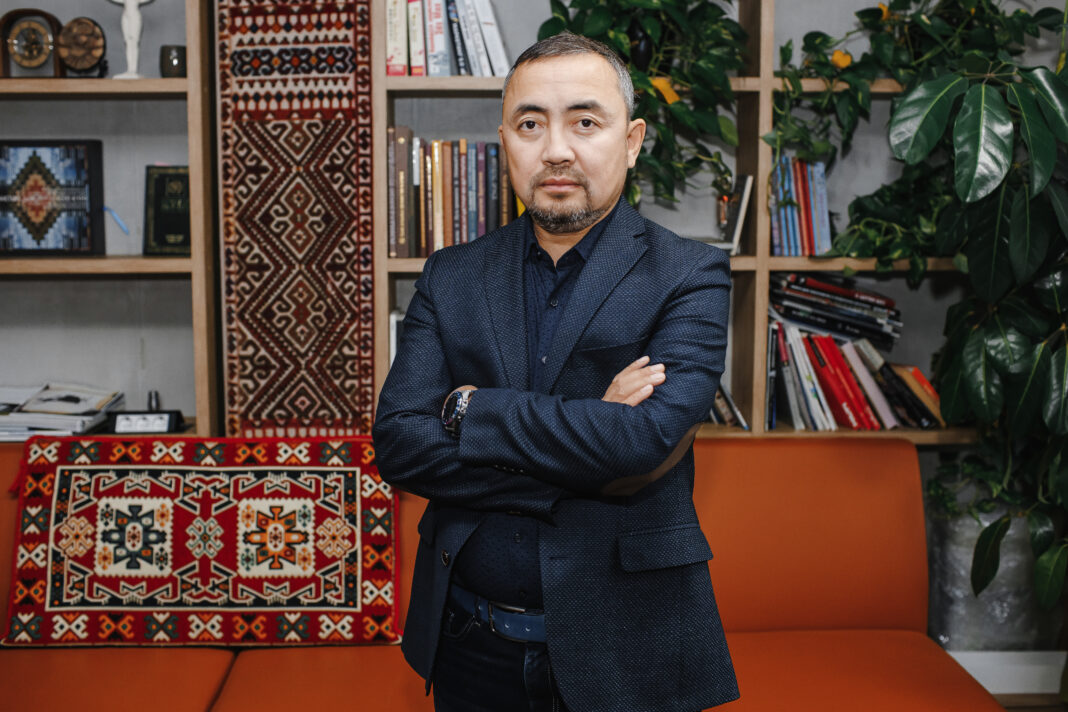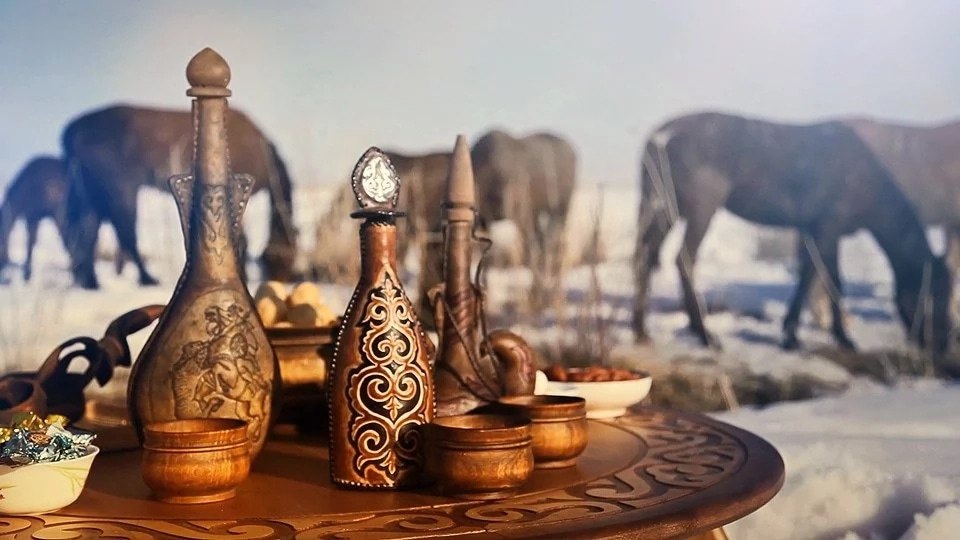On July 19–20, Astana will host the first BaiQymyz Festival. It’s a celebration that brings together cultural heritage, agritourism, and healthy living. The project’s creator, Zhumazhan Kaltaev, shares how the idea for the festival came about, what makes kymyz from different regions unique, what to expect from the horse breeding exhibition, and what the future holds for the initiative.

Zhumazhan, how did the idea for the BaiQymyz Festival and establishing kymyz as a global cultural-agricultural brand come to life?
The idea for BaiQymyz (Bapталған қымыз) was born from a sincere desire to bring kymyz back to the everyday Kazakh table and to remind the world of its true value. I’m originally from the Ulytau region and have loved kymyz since childhood – its taste, its aroma, and how each drop carries the spirit of the steppe. In our home, it was always present on the table.
But more and more, I noticed people offering soda instead of kymyz when hosting guests. That’s a troubling sign. We’re starting to forget something that was an essential part of our culture for centuries. One of the festival’s goals is to reignite love for our roots and revive interest in what is truly ours.
Kymyz isn’t just a drink. It’s a source of health, probiotics, and vitamins. It strengthens the immune system and has a positive effect on the body. That’s why we called the festival BaiQymyz, which means “rich kymyz.” Rich not only in nutrients but in spirit, history, and tradition.
We were inspired by international examples, such as Oktoberfest. Why not create something similar with our own national identity? A huge influence on me was the book Mädeni Maydan. It made me ask myself, “What can I do for Kazakh culture?”
That’s how the project began. I’m grateful to the Astana city administration, our sponsors, and partners for their belief and support. This isn’t just a celebration. It’s a cultural platform that will boost both domestic and inbound tourism, support agricultural production, and promote national wellness. The festival will also include a scientific conference on horse breeding. It’s all about reconnecting with our roots and sharing the values we can be proud of.

Which regions of Kazakhstan are participating, and how does kymyz differ across them?
This year, nearly every region is involved: Akmola, Almaty, Abai, Karaganda, Zhetysu, Mangystau, and Turkistan regions. Over 50 producers have already applied to enter the competition.
Kymyz is unique in that it reflects the region where it’s made. Differences in climate, horse breeds, feeding practices, and fermentation traditions all influence the flavor. In some places, kymyz is light with a hint of sourness; in others, it’s rich and tangy. Every farm has its own recipe passed down through generations. This variety is what makes the festival so exciting. You can taste kymyz from all corners of the country and experience the steppe’s spirit in all its complexity.
Tell us more about the “Ең үздік қымыз” (Best Kymyz) competition. How will it be judged, and who’s on the jury?
The “Best Kymyz” competition is a real treat for all kymyz lovers. Judging will take place across three categories:
-
Laboratory Testing: Kymyz samples will be analyzed for quality, safety, and compliance with standards.
-
People’s Choice: Festival visitors on July 19–20 will be able to taste and vote for their favorite samples. This creates a vibrant and open atmosphere.
-
Presentation: How the kymyz is presented matters – the bottle design, the story behind the product, and its overall image all influence perception.
Winners will be chosen based on a combined score from experts, festival guests, and lab results. The jury will include doctors, food technologists, ethnographers, industry experts, and true kymyz connoisseurs. This ensures both professional and heartfelt evaluations.
What breeds of horses will be showcased? Will we see traditional Kazakh breeds?
Absolutely. Ancient Kazakh breeds like Zhaby, Koshym, Kostanay, Mughalzhar, and Aday will be featured. Each is a symbol of the steppe. For example, Zhaby is hardy and low-maintenance, Koshym produces abundant milk, and Aday horses are fast and graceful.
Modern sport and hybrid breeds used in today’s farming will also be present.
The exhibition will include a craft fair featuring leather goods, saddles, whips, jewelry – all handmade. There will also be an auction where visitors can buy rare items and even pedigree horses. It’s not just an exhibit. It’s a direct connection to living history.
What kind of cultural and sports program awaits visitors?
It’s a rich and diverse program designed for a wide audience.
Cultural program includes:
-
Ethnic ensembles and theatrical processions
-
Masterclasses on kymyz preparation, leather tanning, and harness making
-
A scientific-practical conference with guests from Kazakhstan, Germany, Russia, and Kyrgyzstan
Sports program includes:
-
Audaryspak (traditional horseback wrestling)
-
Asau uretu (taming wild stallions)
-
Greyhound races with Tazy dogs
-
Shalma salu (lasso throwing)
-
Ancient games like Zhilik syndyru (a contest of strength and agility)
It will be lively, exciting, and deeply Kazakh.
Will international guests, both consumers and producers, be involved in the future?
Yes. This year we’ve invited specialists from Germany, Kyrgyzstan, and Russia. In the future, we plan to expand. There’s great interest in kymyz in Mongolia, Hungary, and China – and that’s just the beginning.
Today, kymyz is being recognized as a drink of the future: natural, functional, and eco-friendly. That’s a global trend. Our mission is to ensure that Kazakhstan is recognized as its birthplace on the world stage.
Does the festival have long-term plans? Will it become an annual event, or possibly expand?
BaiQymyz is intended to be an annual event. We plan to host it not only in Astana but also in other regions – Almaty, the eastern steppes, and eventually abroad. Why not organize the festival in Turkey, Hungary, or Germany, where there’s strong interest in ethnoculture and agritourism?
Our goal is to create a sustainable cultural-agricultural brand that connects farmers, artisans, experts, and travelers. This will boost horse breeding, traditional crafts, domestic tourism, and the global presence of Kazakh culture.
Finally, what do you personally hope for from the festival?
I believe BaiQymyz will become a new Kazakh tradition that lasts. A meeting point for city and countryside, youth and elders, past and present. A dialogue with our heritage.
We want kymyz to once again symbolize health, strength, and hospitality – to return to the Kazakh table not as a novelty, but as a part of everyday life. And we want the world to recognize it as a true treasure of the Kazakh nation.
The BaiQymyz Festival will take place on July 19–20 in Astana at the Kazanat Hippodrome. Don’t miss it!


